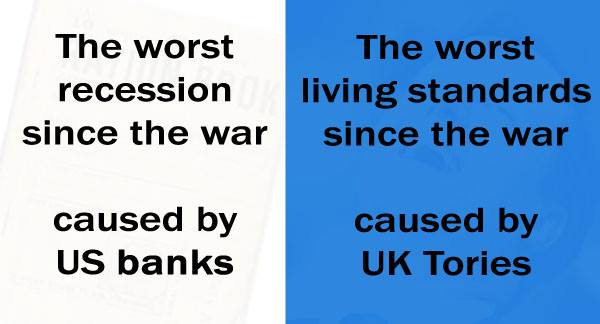
FOREWORD
Over the last seven years disabled people have borne the brunt of the cuts inflicted on them by the Conservative Government and the Coalition before them.
The cuts have had a detrimental effect on the lives of disabled people, cutting living standards and undermining their access to education, social care and to justice.
Two years ago the United Nations (UN) convened a committee to investigate state violations of the UN Convention of the Rights of Persons with Disabilities (UN CRPD). Last year the UN published their report and concluded that the Conservative Government had committed ‘grave, systematic violations of the rights of persons with disabilities.’
This is a damning indictment of the treatment of disabled people by the Conservatives, one which shames us as a country.
We believe in a social model of disability, a society which removes the barriers restricting opportunities and choices for disabled people. As such we will build on the previous Labour government’s commitment to disabled people in 2009 as signatories to the UN CRPD. A Labour government will incorporate the UN CRPD into UK law.
We are proud of the manifesto we have developed with, and for, disabled people, and would like to take the opportunity of thanking everyone who has taken part in Labour’s Disability Equality Roadshow over the last year. We have crossed the length and breadth of the country to engage with disabled people and their carers, capturing their views on what needs to change for disabled people to live full and independent lives.
We will continue to work with disabled people in government, fulfilling our promise of ‘nothing about you, without you’.
Jeremy Corbyn, Leader of the Labour Party
Debbie Abrahams, Shadow Work & Pensions Secretary
Marie Rimmer Shadow, Minister for Disabled People.
To access full CONTENT click here (PDF)
After seven years of punitive policies and systematic abuse of the human human rights of disabled people by the coalition and Conservative governments, it is such a profound relief to see Labour have developed this manifesto, using consultations as a democratic opportunity to HEAR and include us in political decision making, and will strongly support disabled people and their families. I am proud to have contributed to this via the consultation held in Newcastle.
Here is a brief summary of some of Labour’s policies:
- Labour will make it a priority to repeal the numerous cuts in social security support for people with disabilities. They will do this through a new Social Security Bill that will be passed within the first year of the new parliament.
- Labour will reverse the £30 per week cut that the Tories recently imposed on disabled people who receive Employment and Support Allowance (ESA).
- Labour will scrap the Bedroom Tax that has cruelly and disproportionately hit over 400,000 families with disabled members with punitive charges for “spare” rooms that are often used to store medical equipment, or for carers to sleep in.
- Labour will end the pointless and needlessly expensive continuous reassessments of disabled people with permanent disabilities, chronic illness and degenerative illness.
- Labour will end the privatisation of disability assessments so that disabled people never again have to face the indignity degradation of having to prove their disability to some corporate bureaucrat with targets to throw as many disabled people off their benefits as possible.
- Labour will scrap the discriminatory and degrading Work Capacity Assessment (WCA) regime that costs billions more to administer than it actually saves in reduced payments in social security support for disabled people.
- Labour will end the privatisation of disability assessments so that disabled people never again have to face the indignity degradation of having to prove their disability
- Labour will scrap the Personal Independence Payment (PIP) assessment regime too.
- Labour will replace the WCA and PIP assessment regimes with a system where personal advisers help to provide every disabled person who feels capable of work to develop a tailored personal plan, adopting a genuinely holistic approach. Those who feel they can’t work will be supported without punishment or threat of uncertainty.
- Labour will incorporate the UN Convention on the Rights of Persons with Disabilities into UK law. And observe the law.
- Labour will scrap the draconian sanctions regime that has consigned hundreds of thousands of disabled people to absolute destitution.
- Labour will increase the Carer’s Allowance by £11 per week to bring it into line with the rate of unemployment benefit.
- Labour will reverse the Tories’ assault on the Bereavement Allowance.
The Labour Party manifesto is a fantastic demonstration that they have been listening to the concerns of disabled people and their families.
The manifesto presents a set of policies that will make people’s lives better.
I’ve summarised a handful of policies here, so be sure to read the full document.

Alex Cunnigham, me, Debbie Abrahams and Gail Ward at the Disability Equality Roadshow in Newcastle



